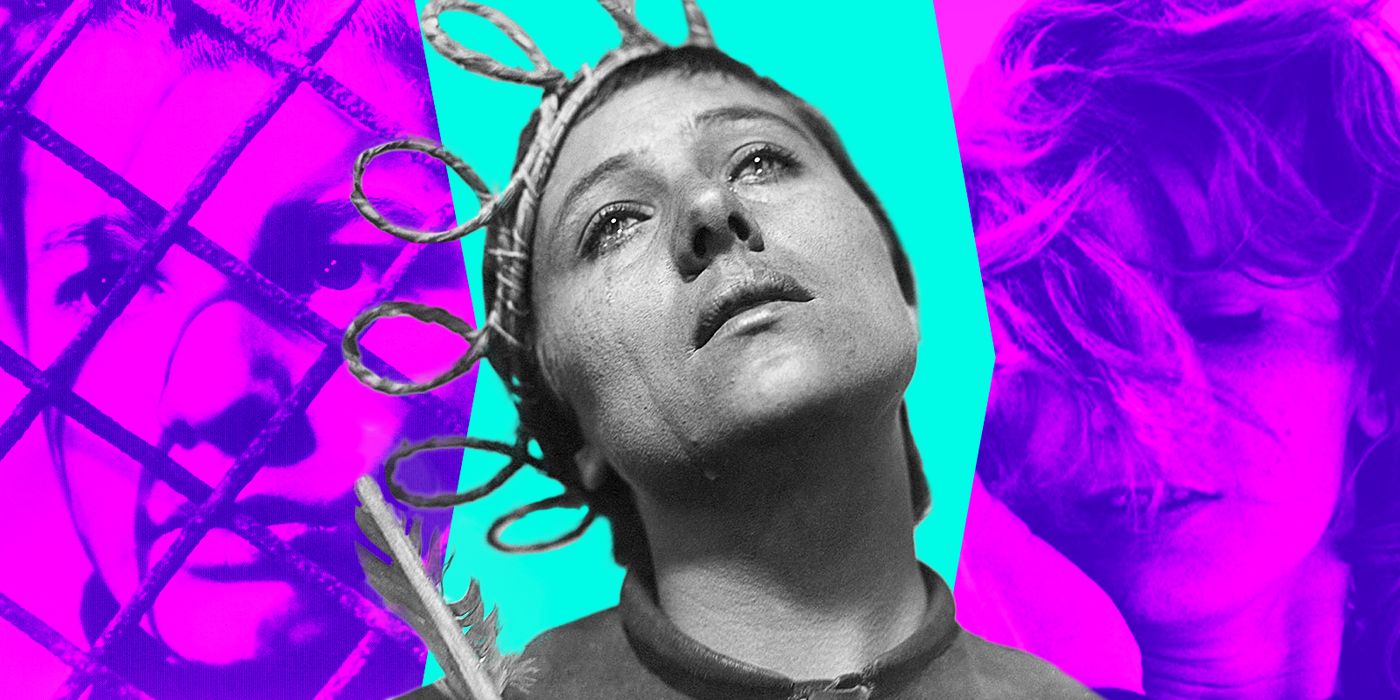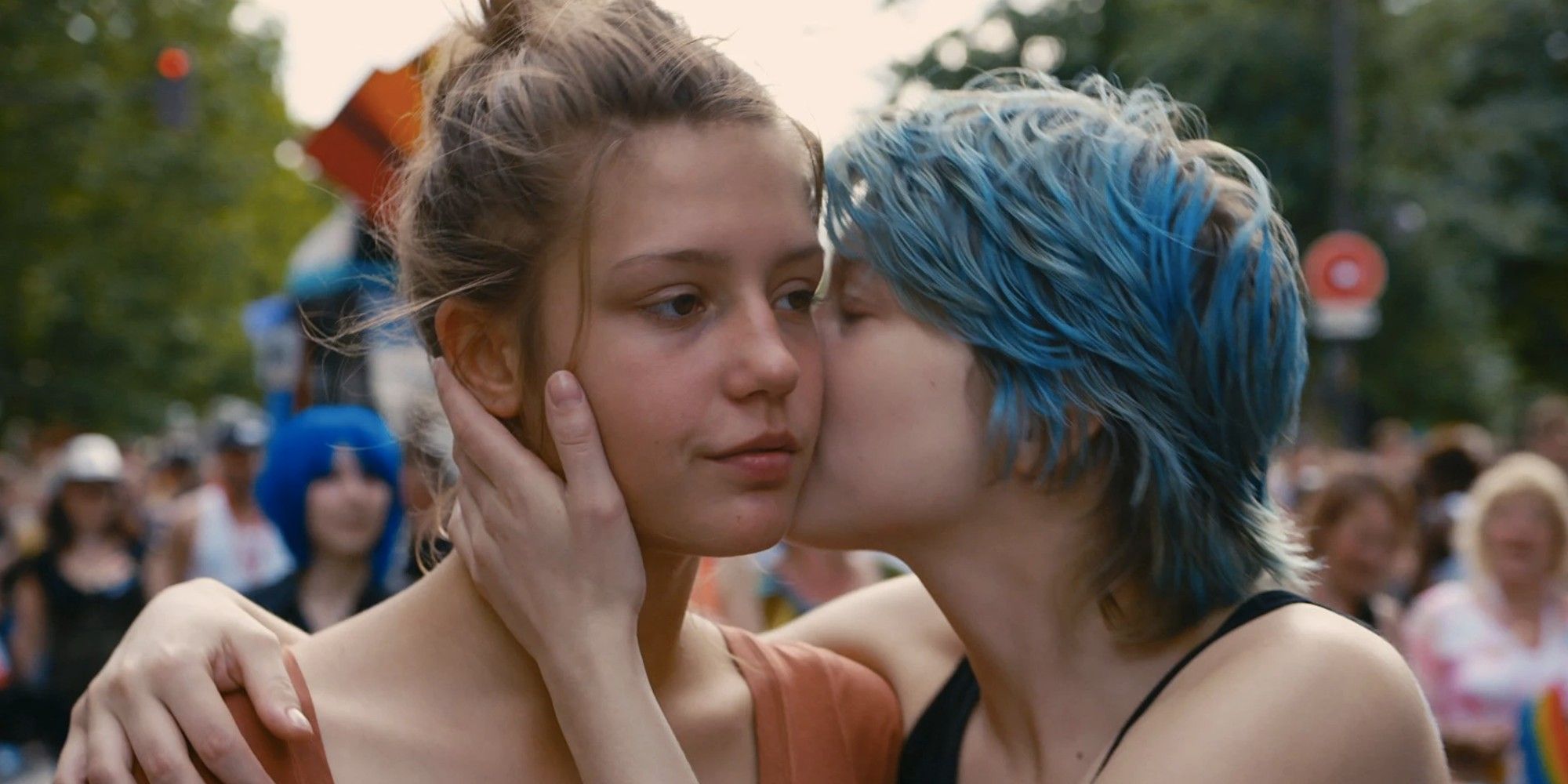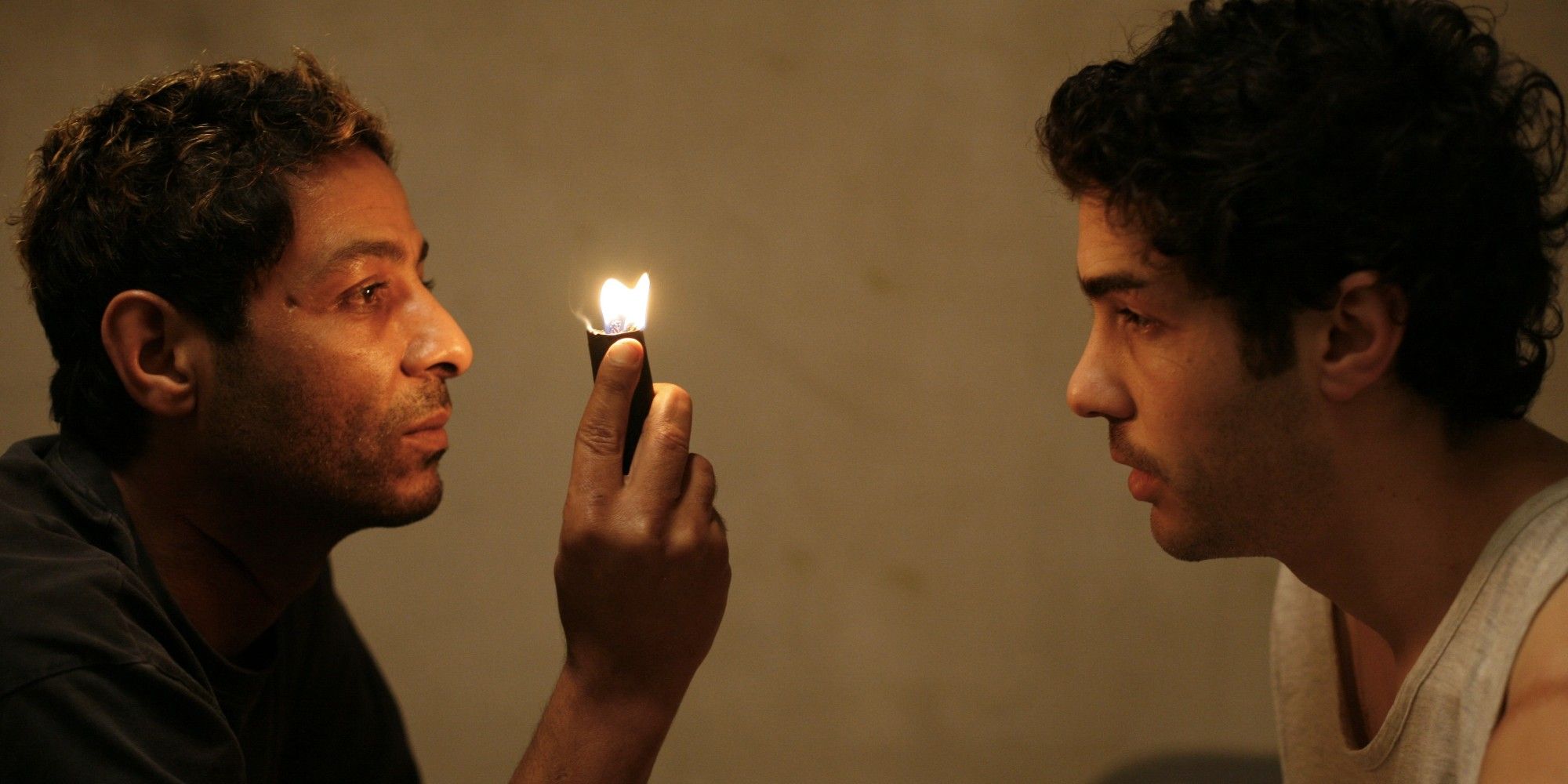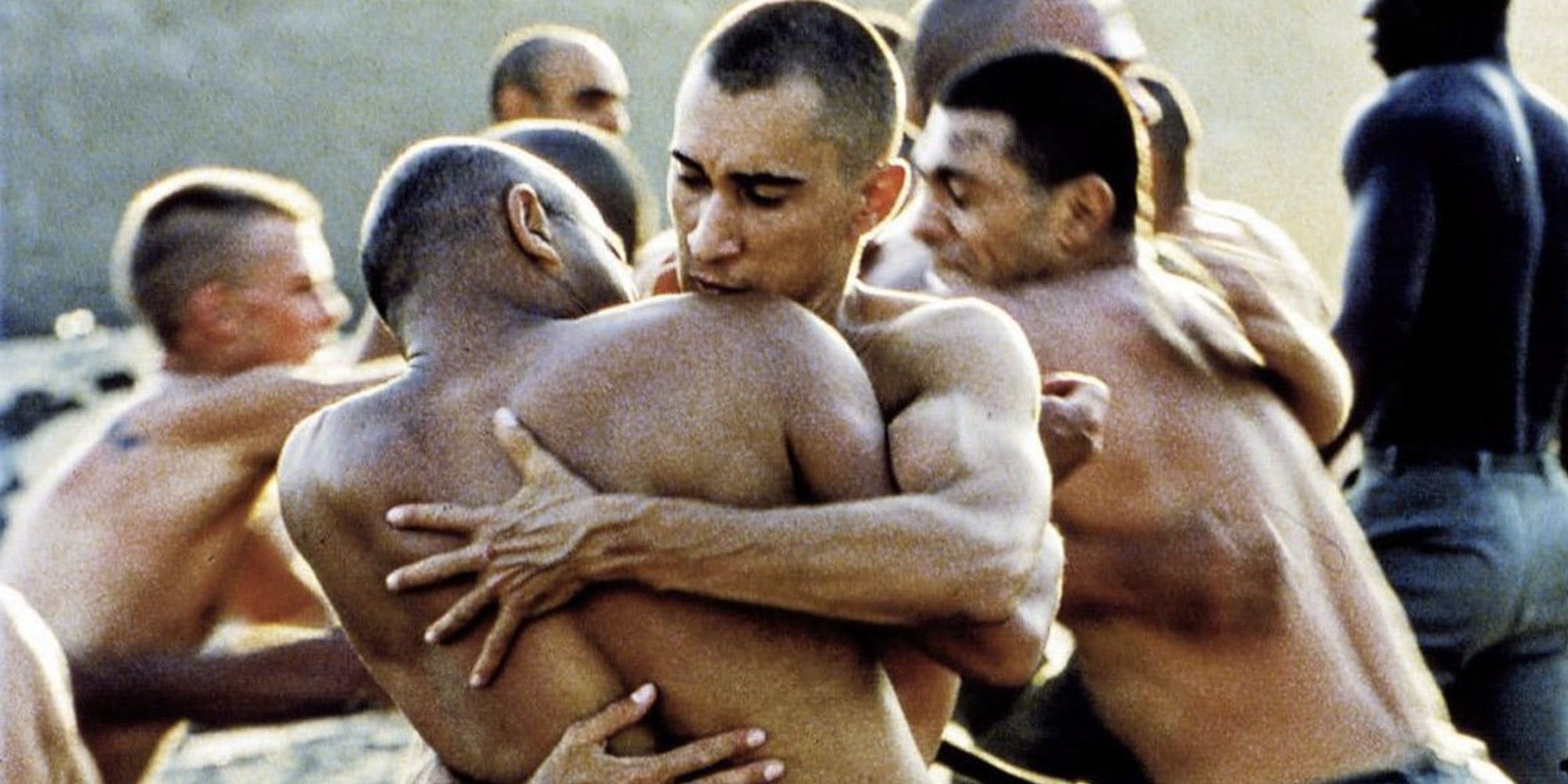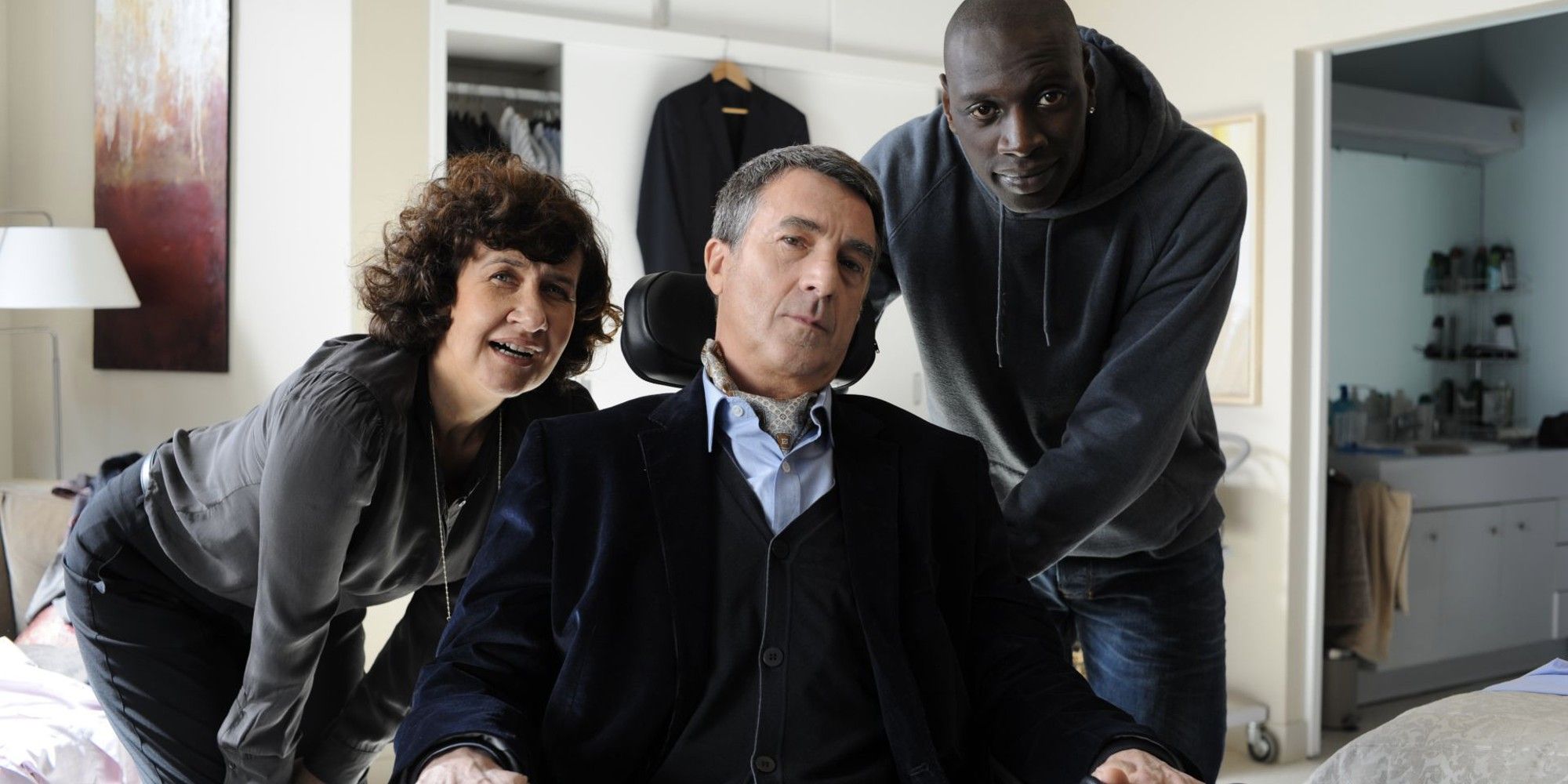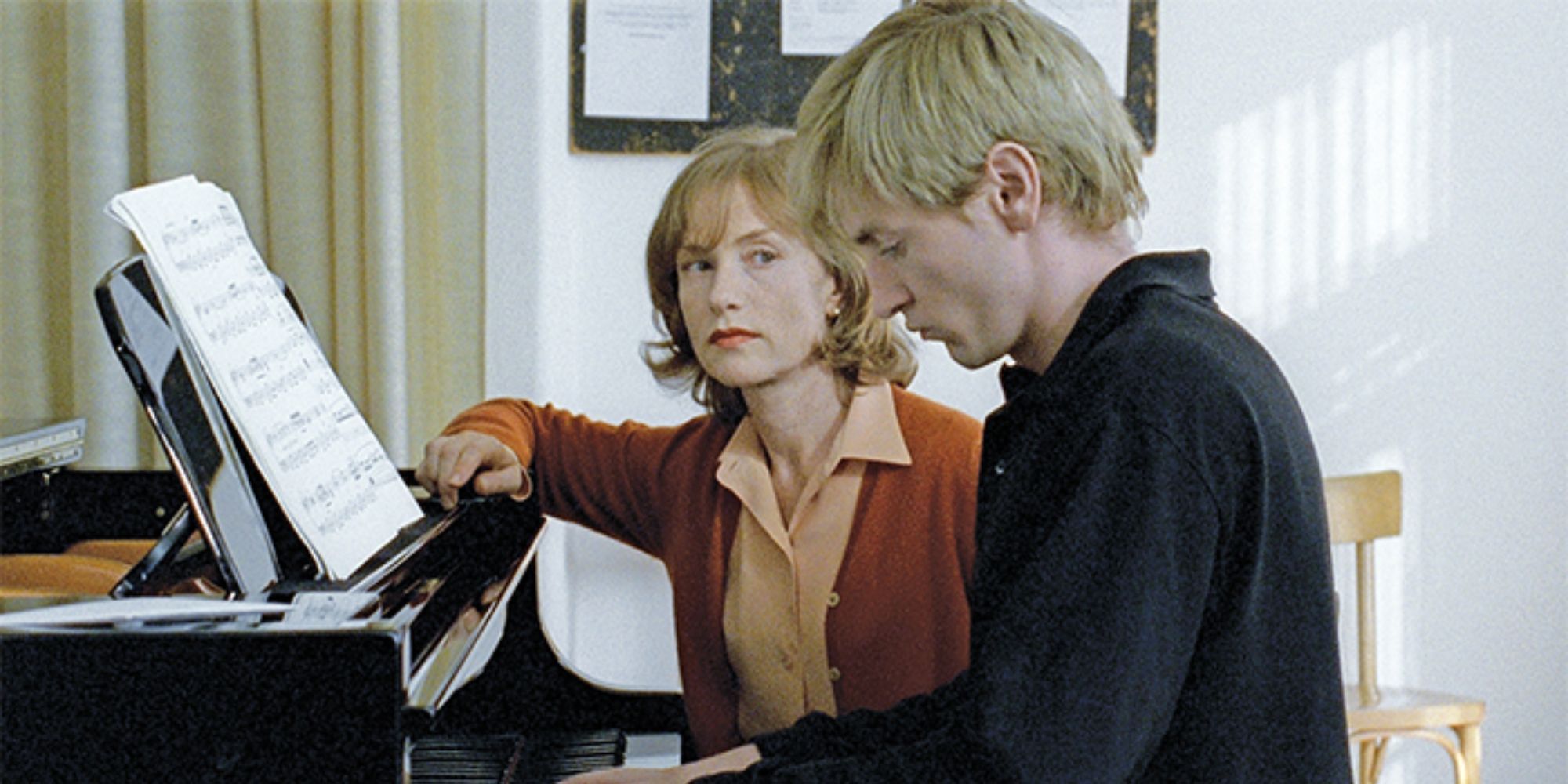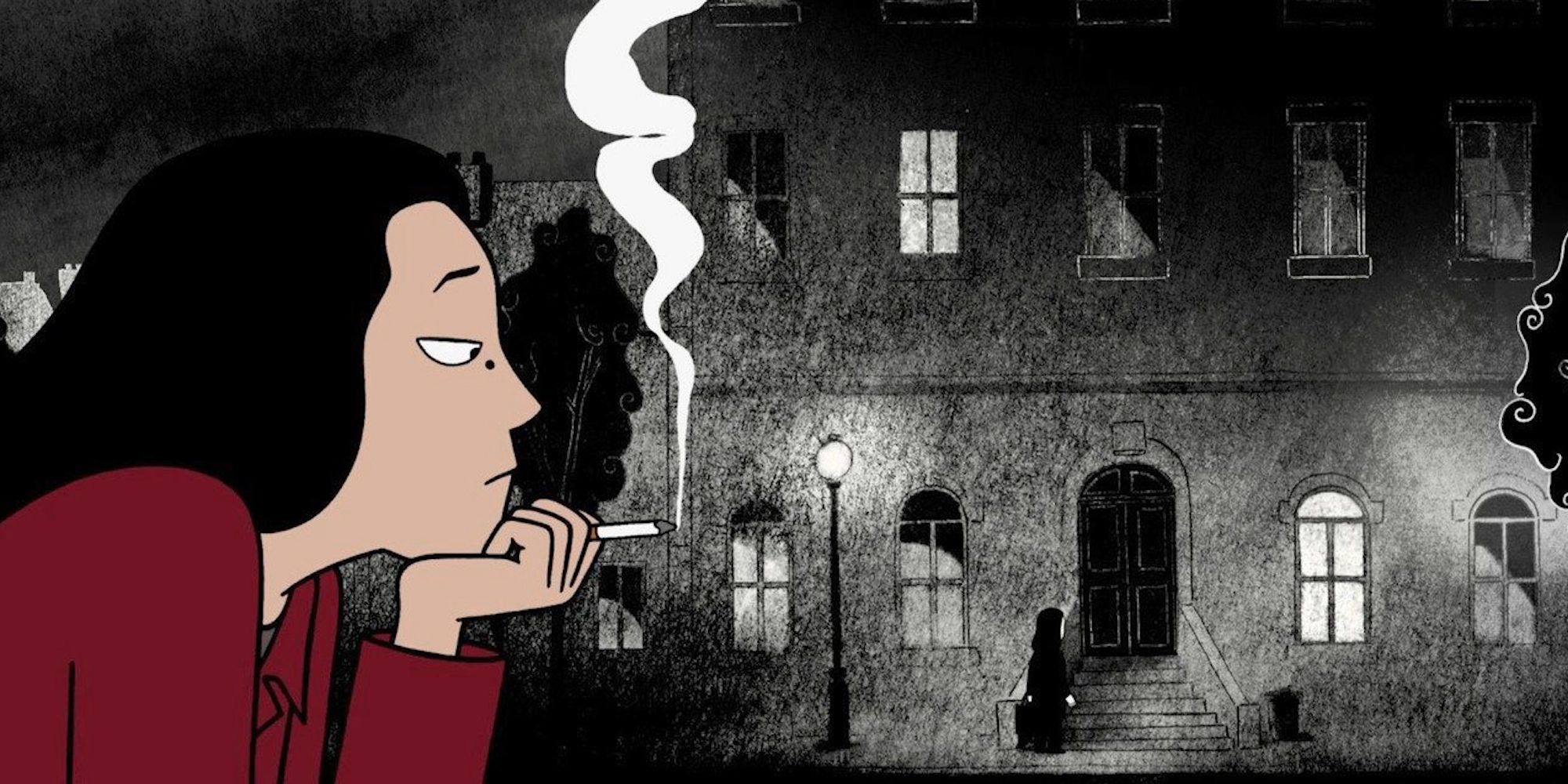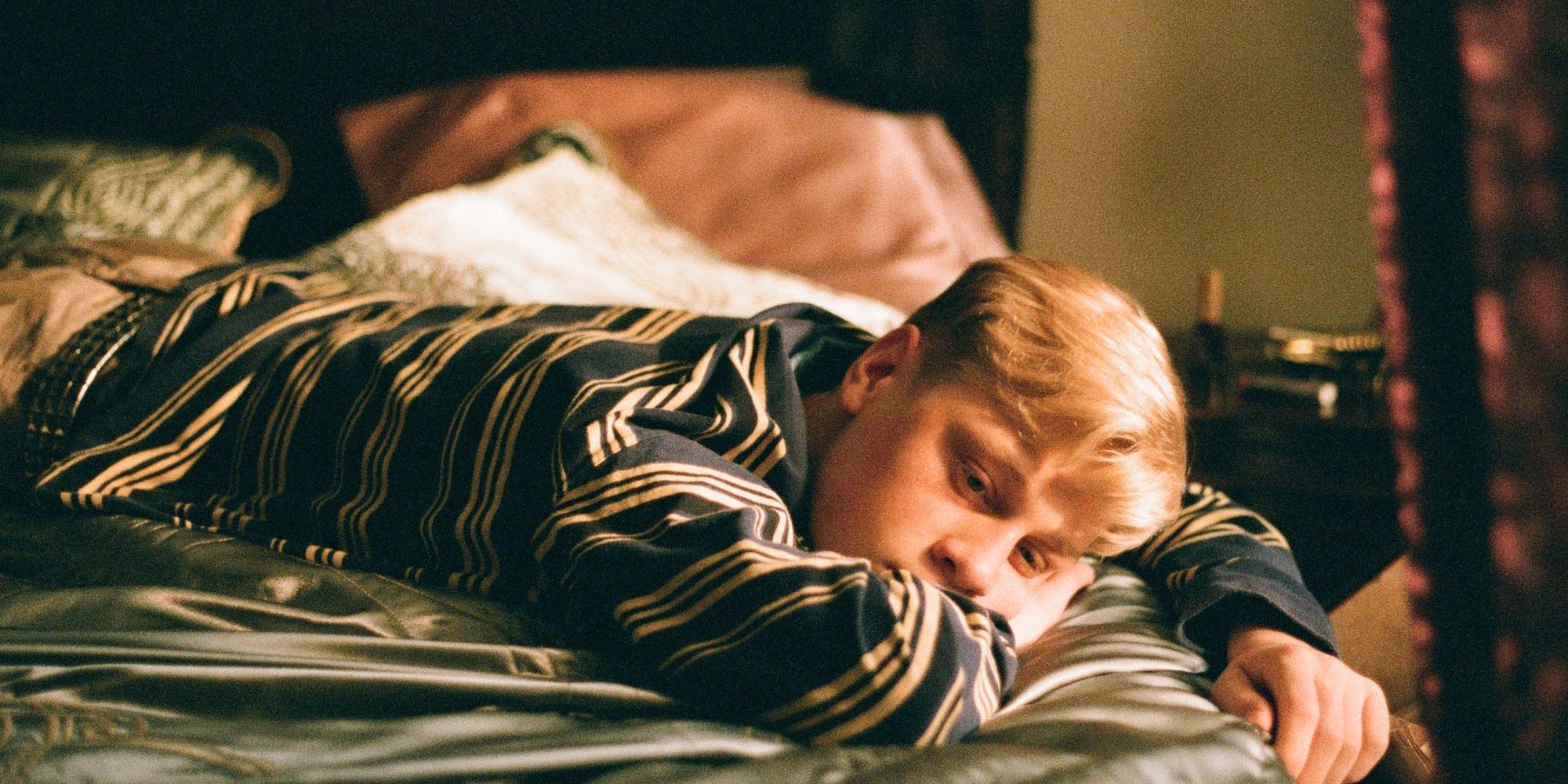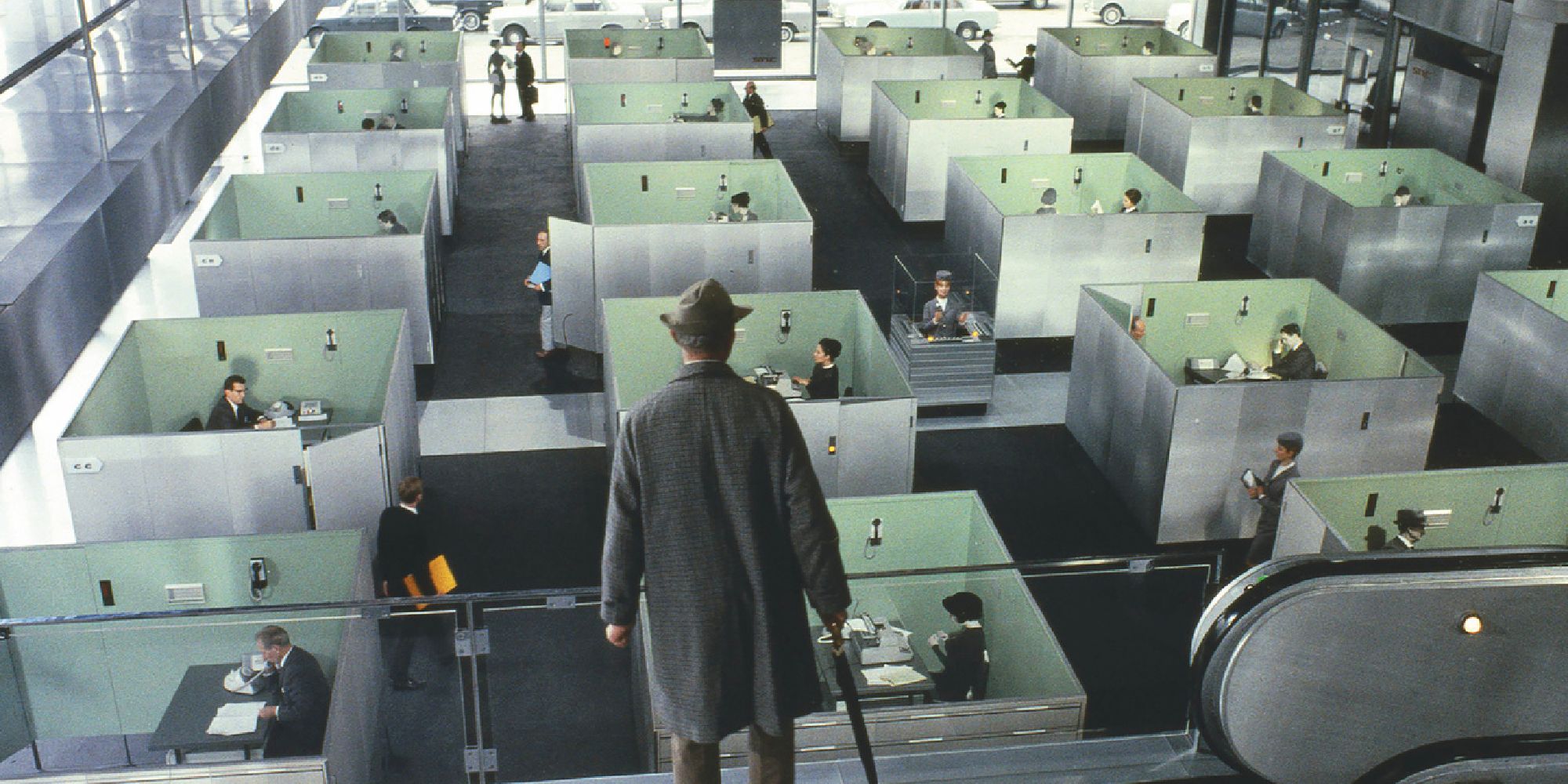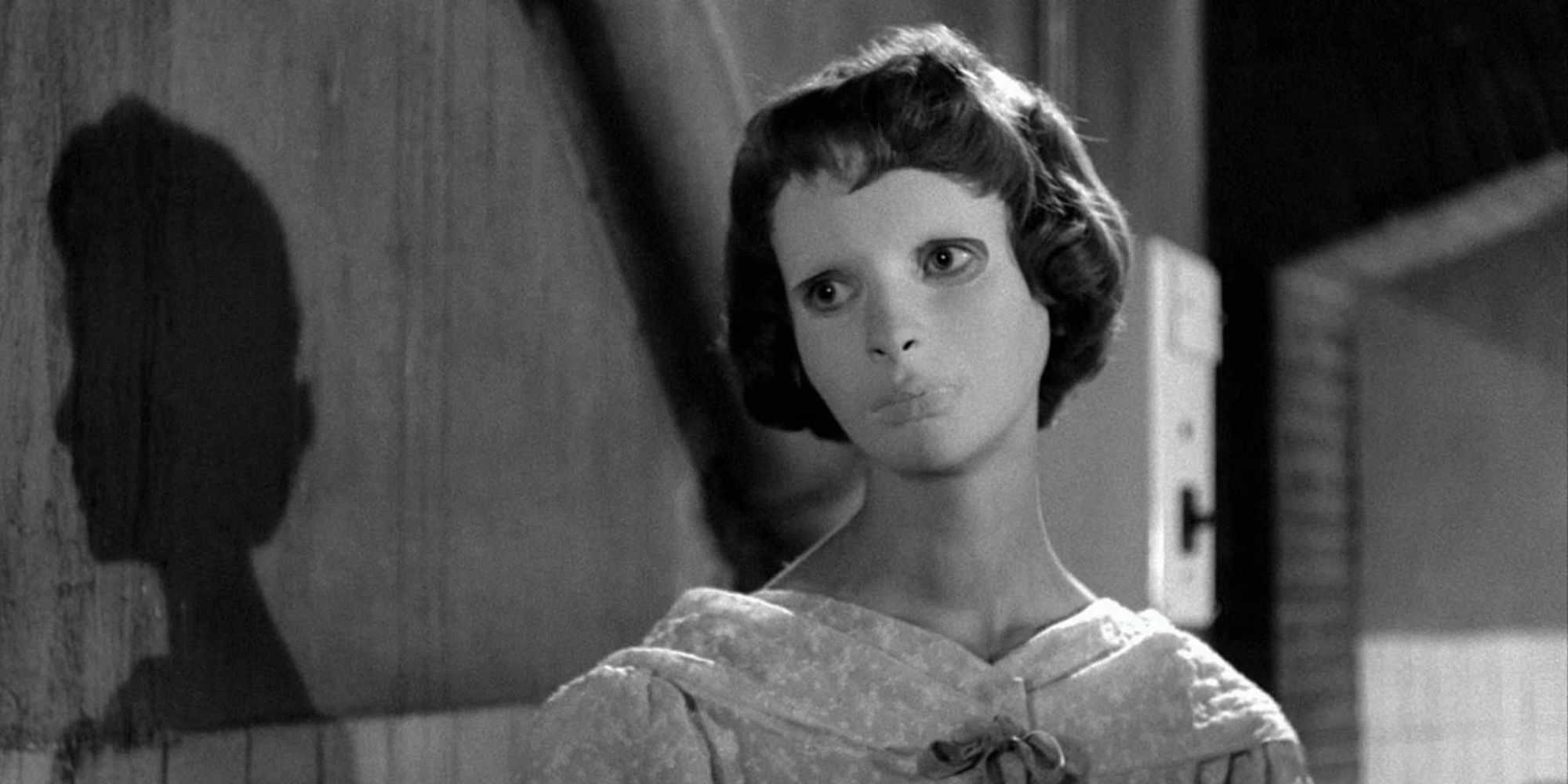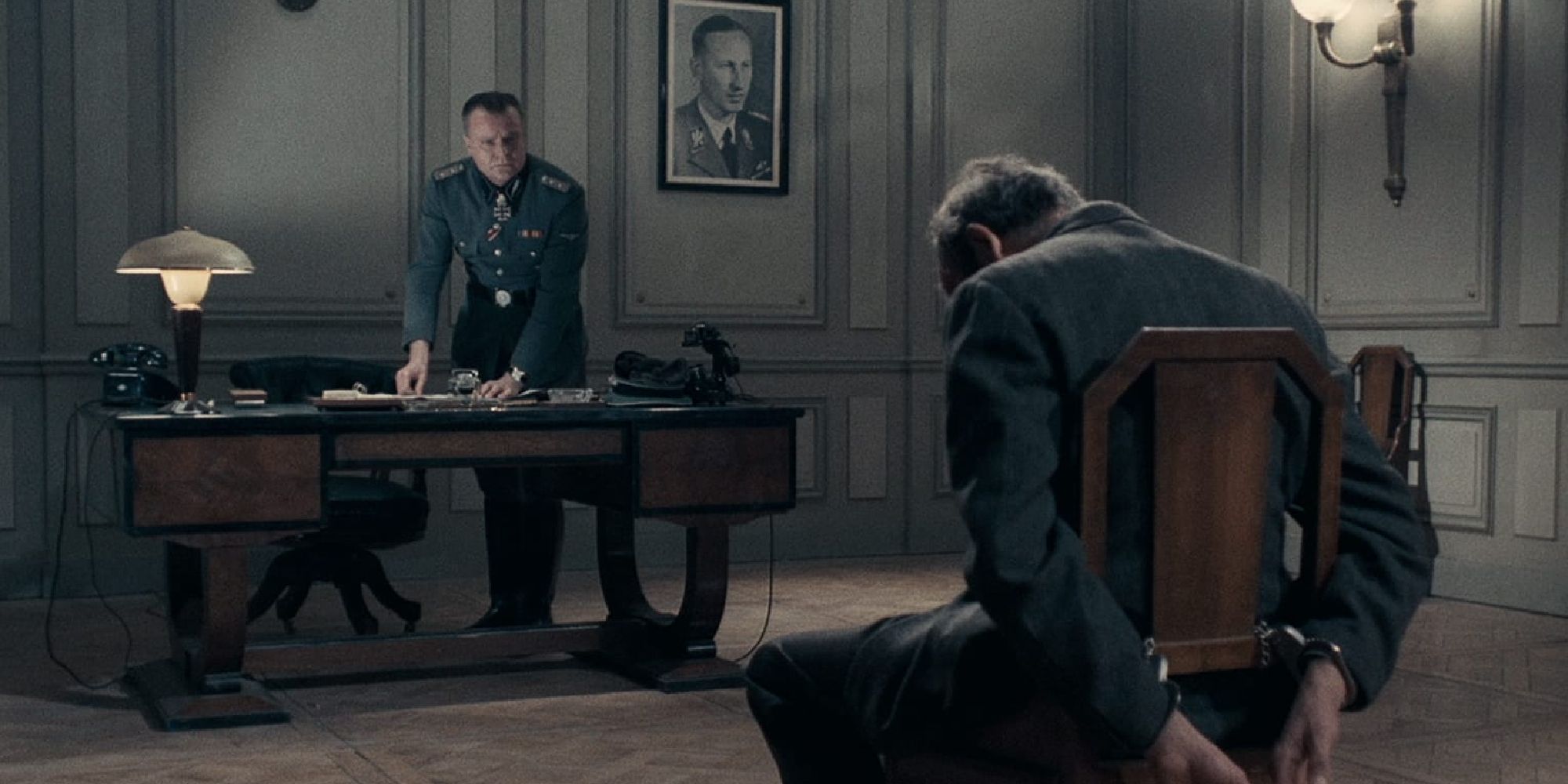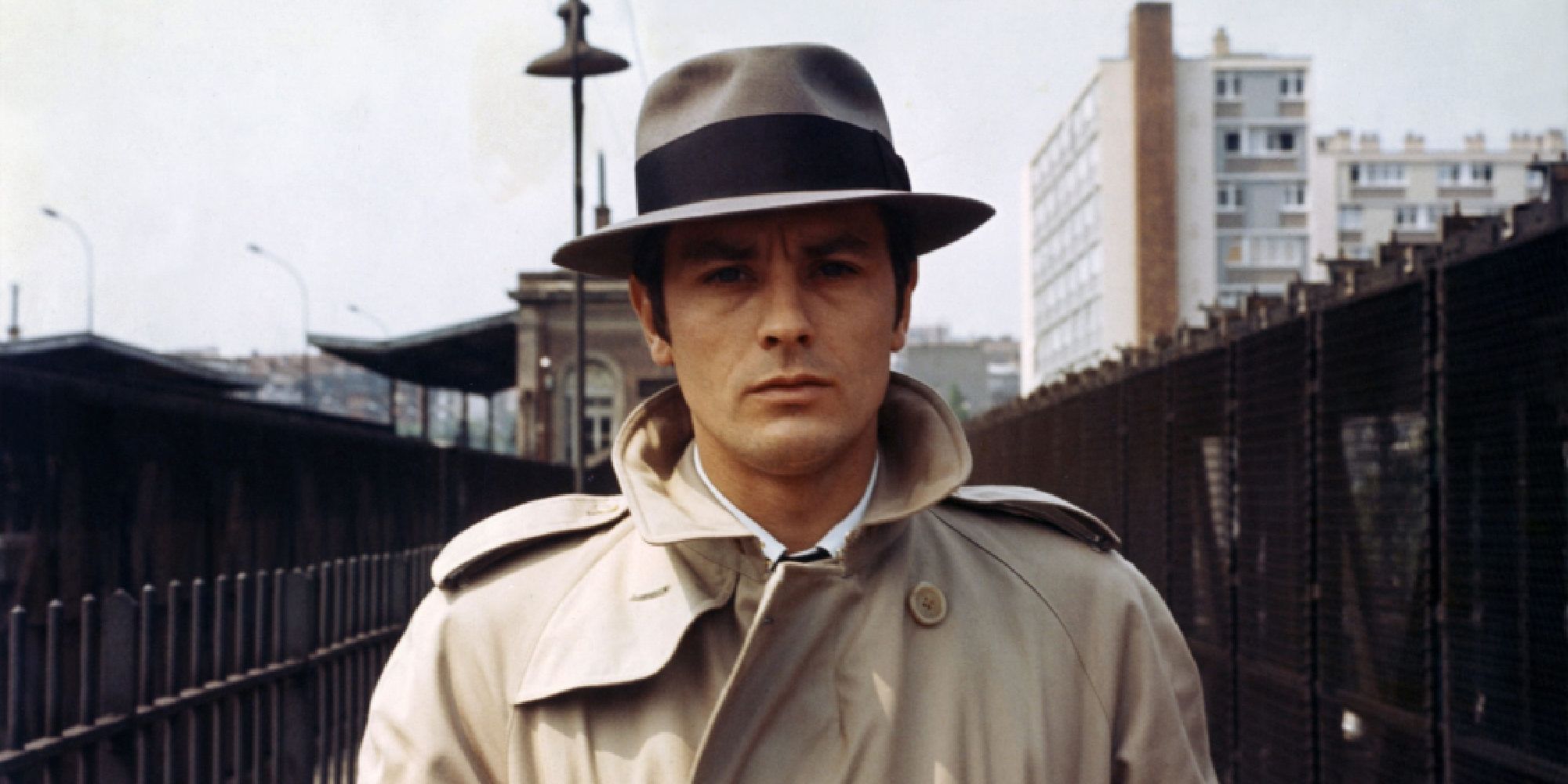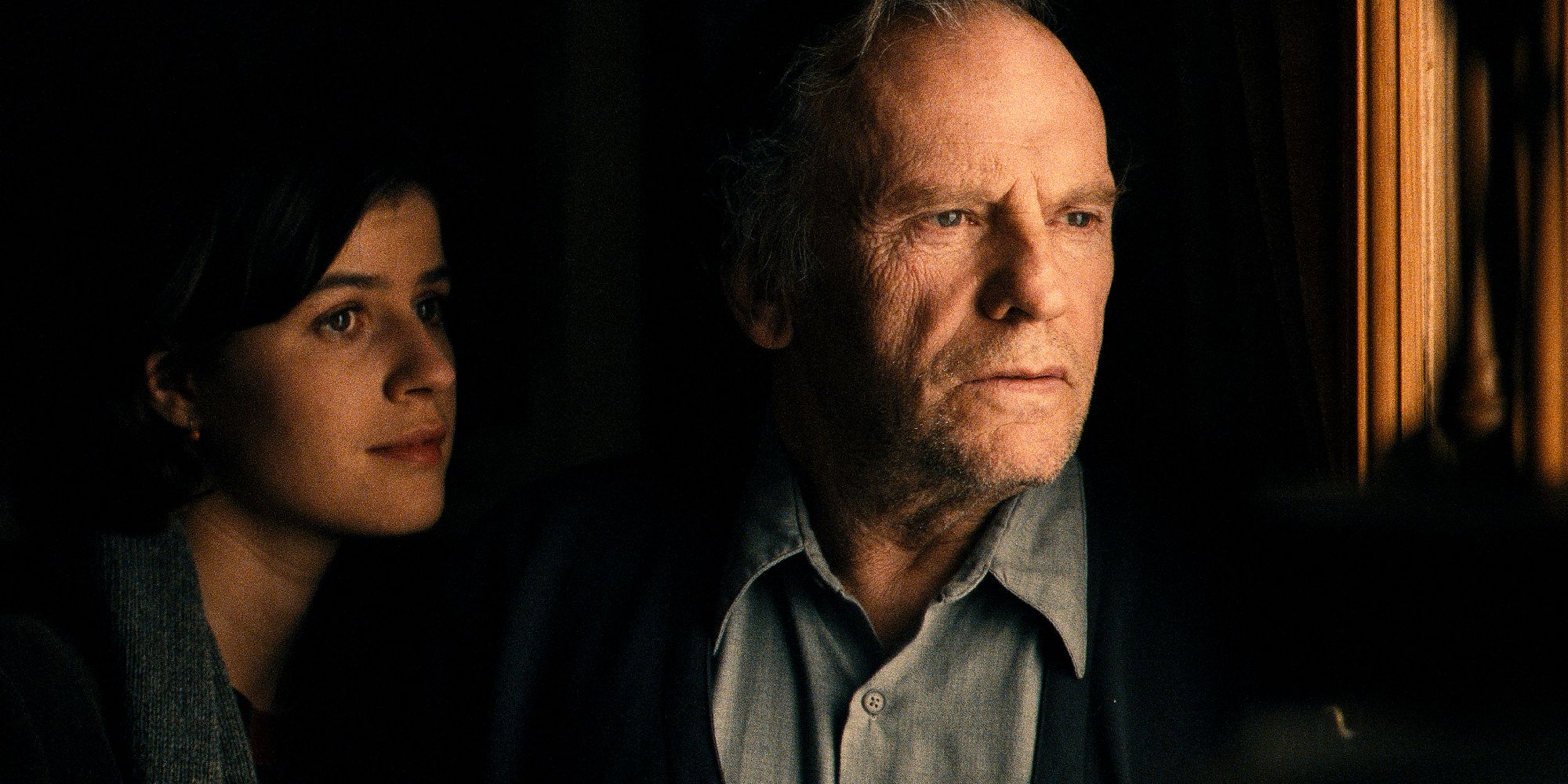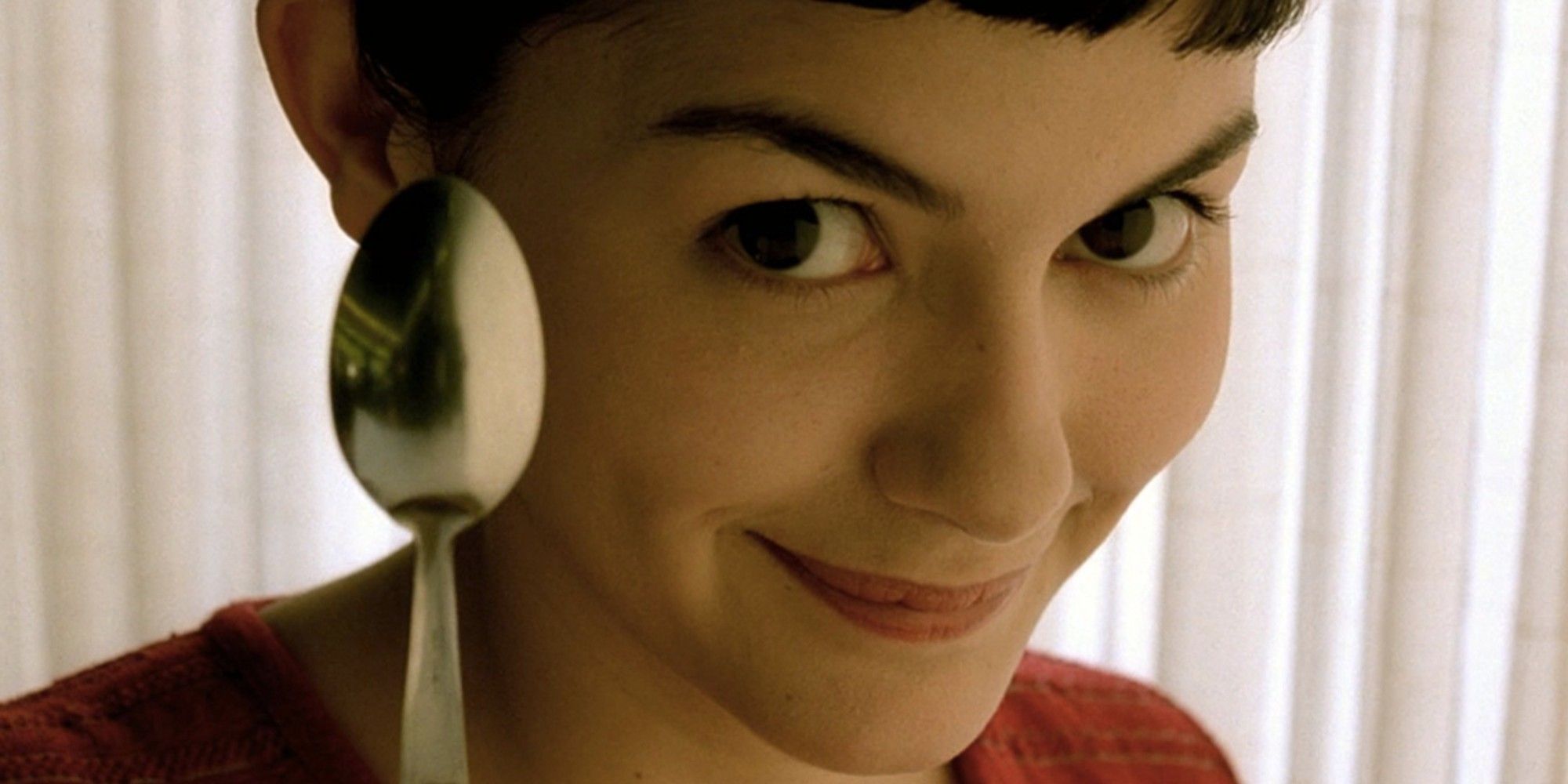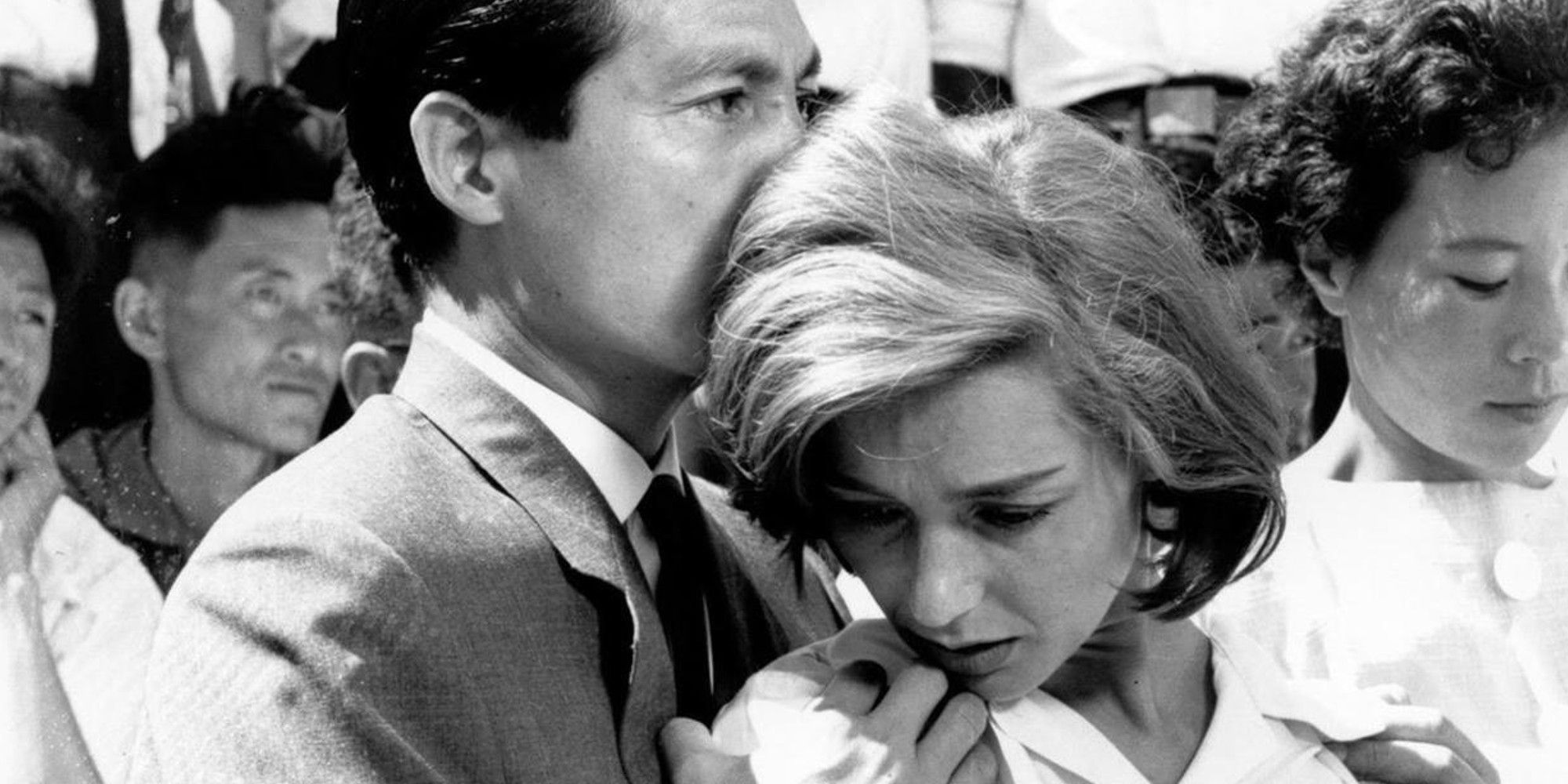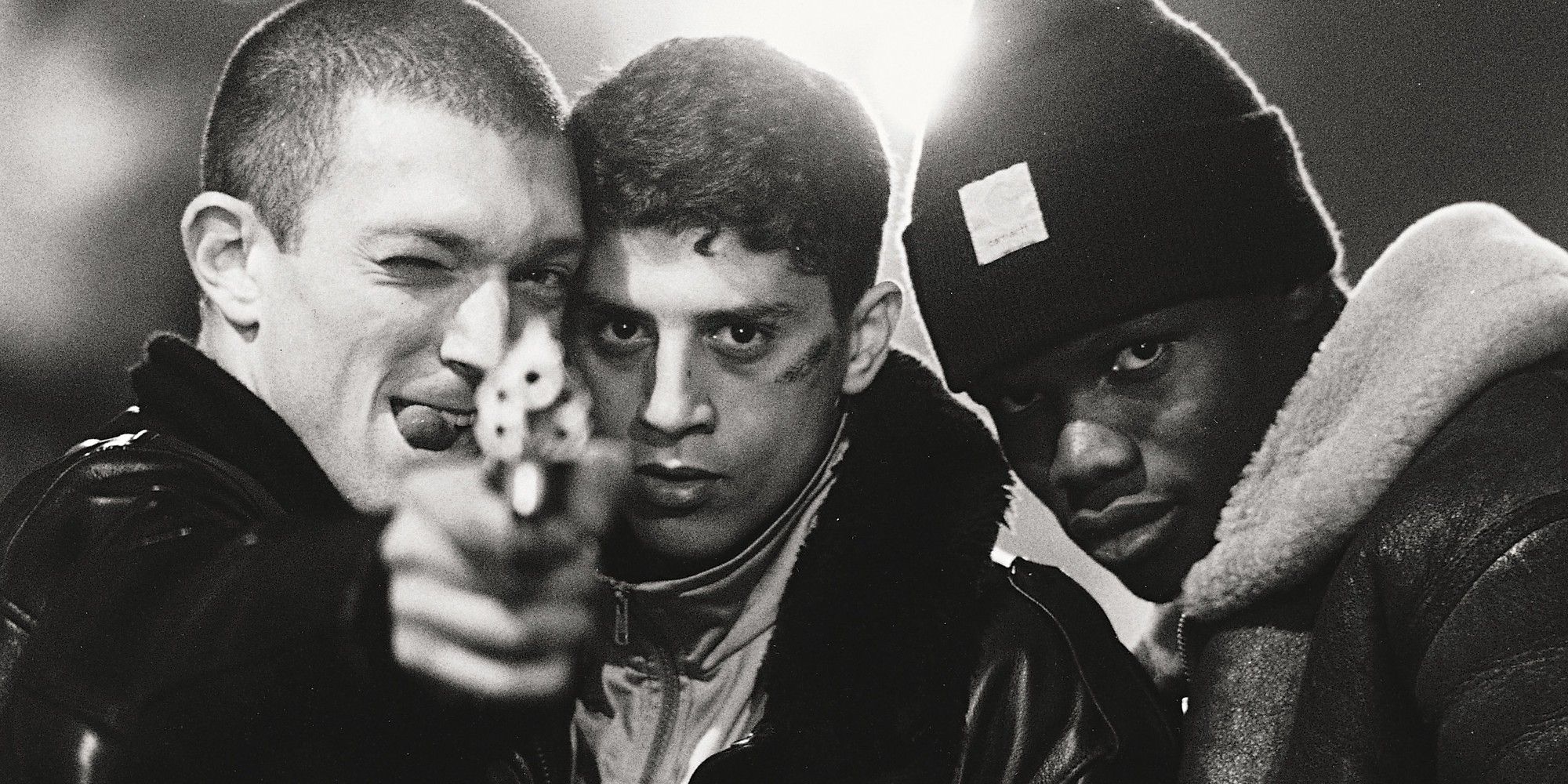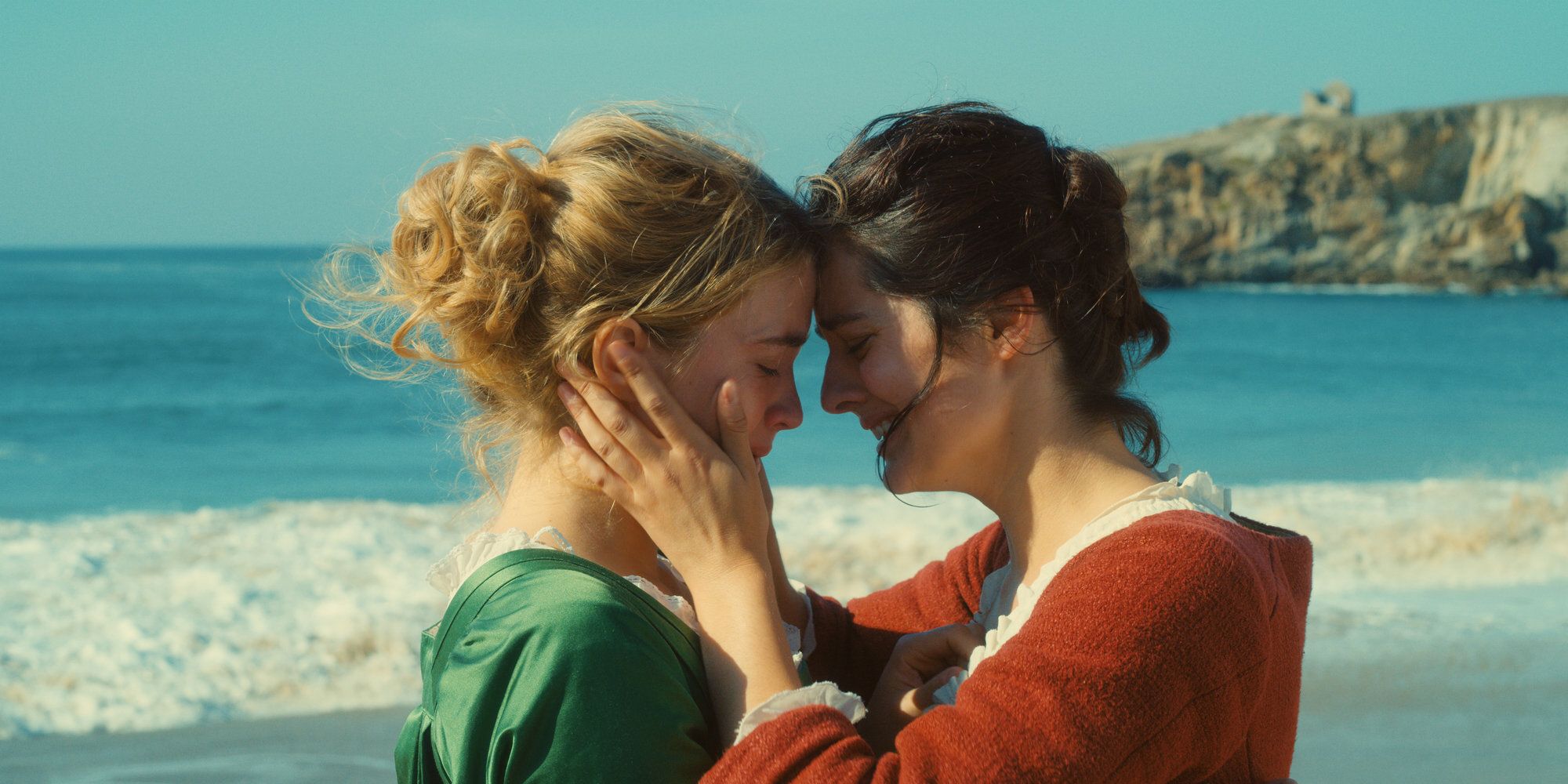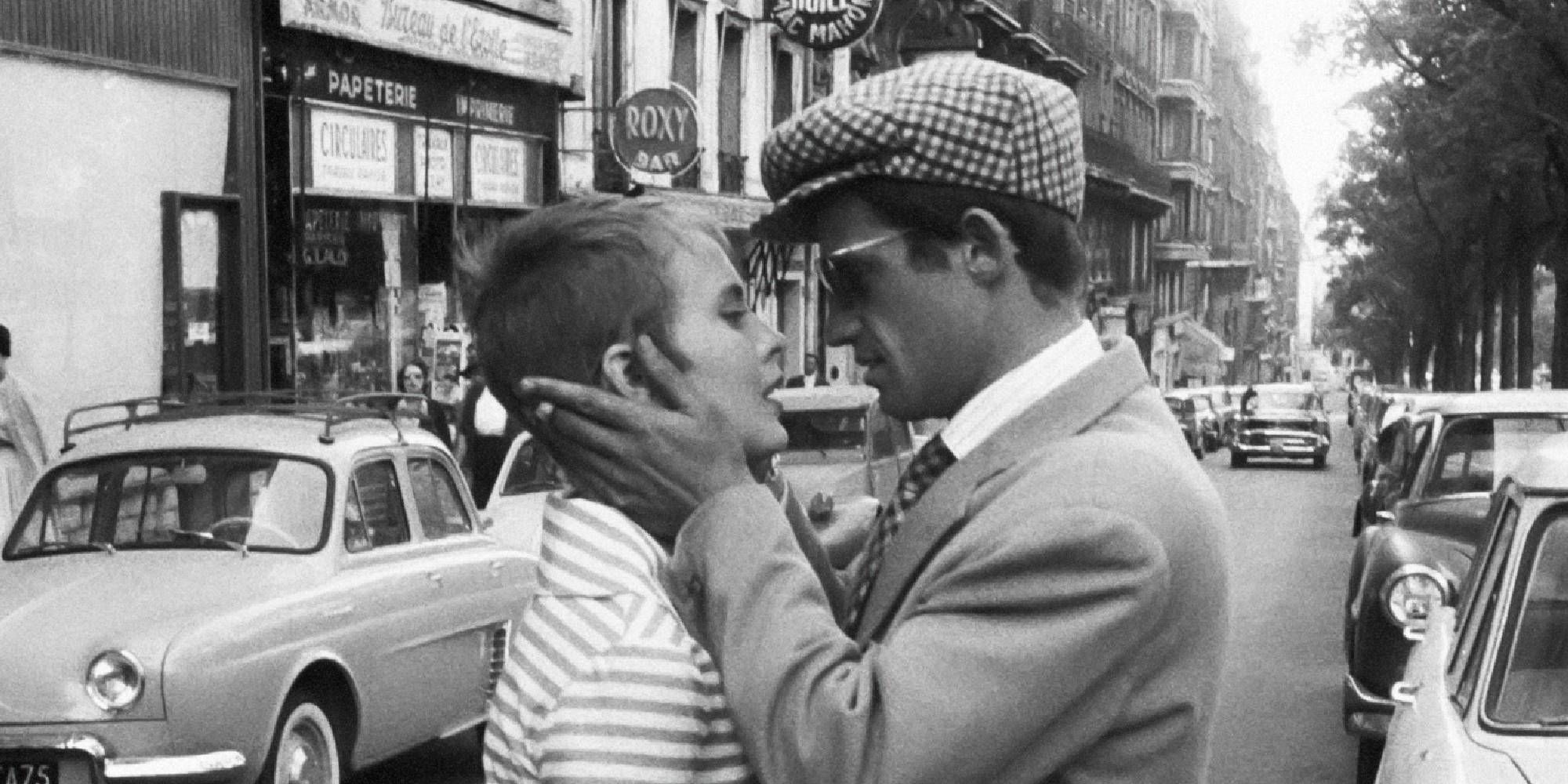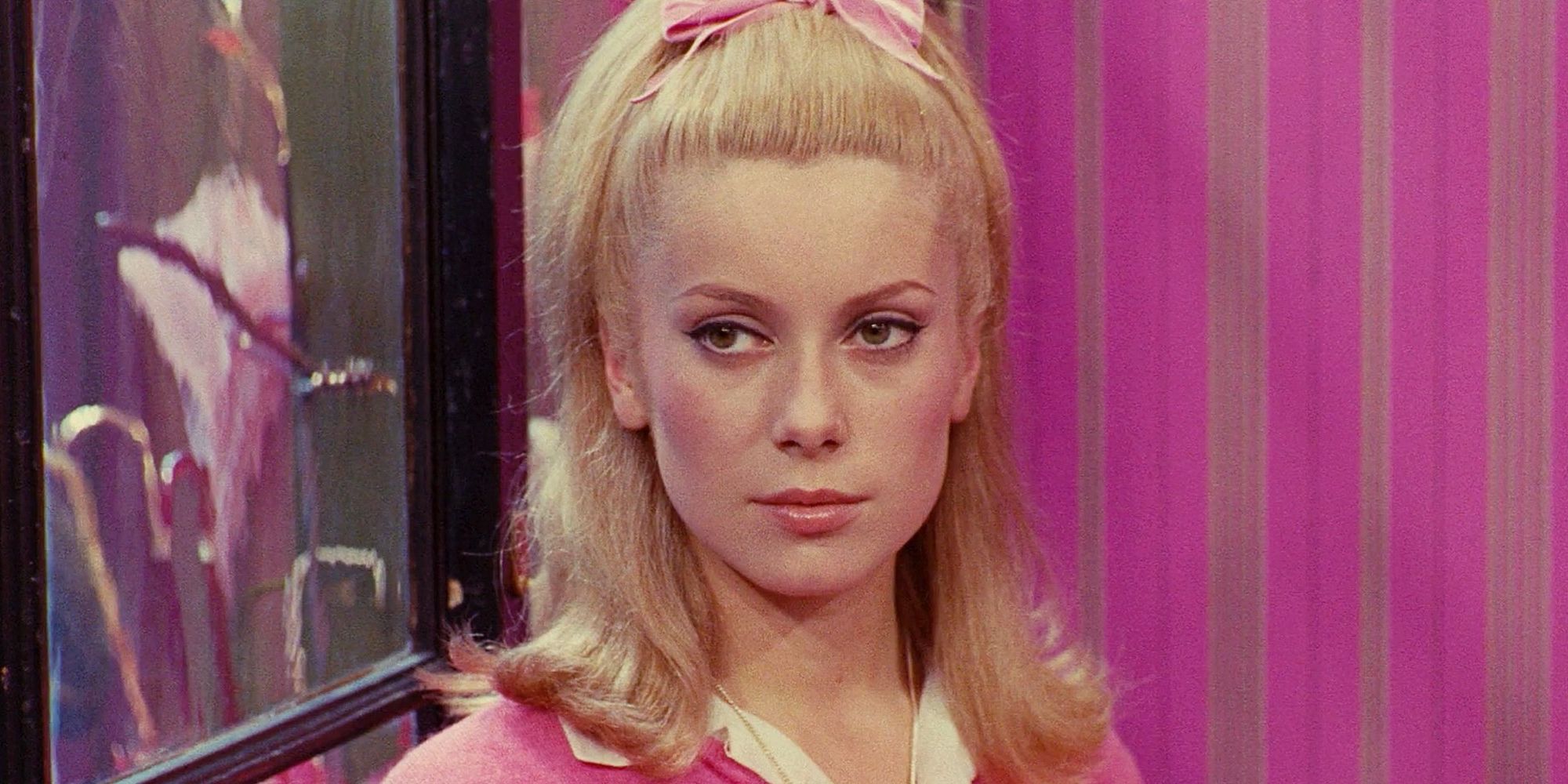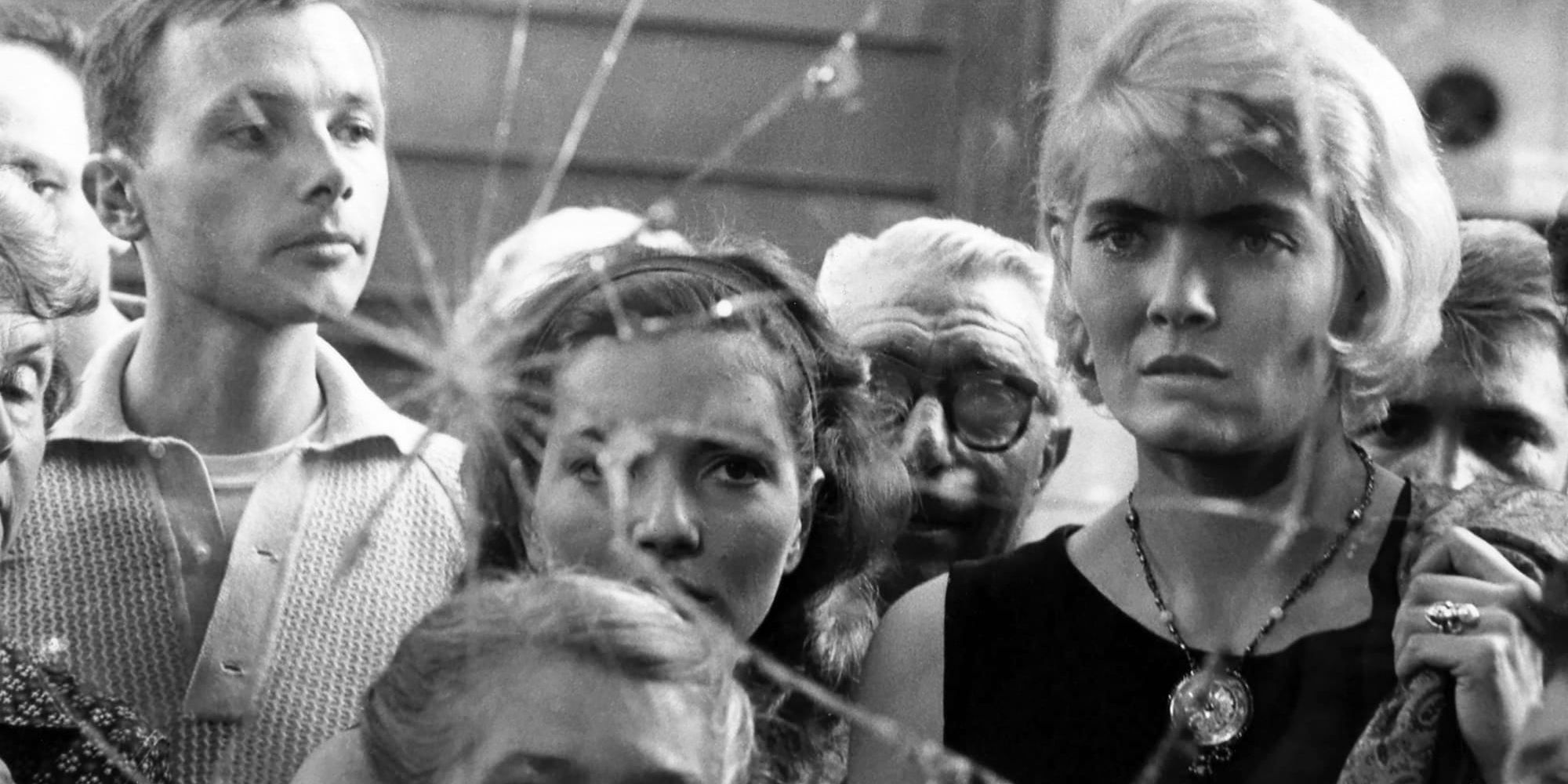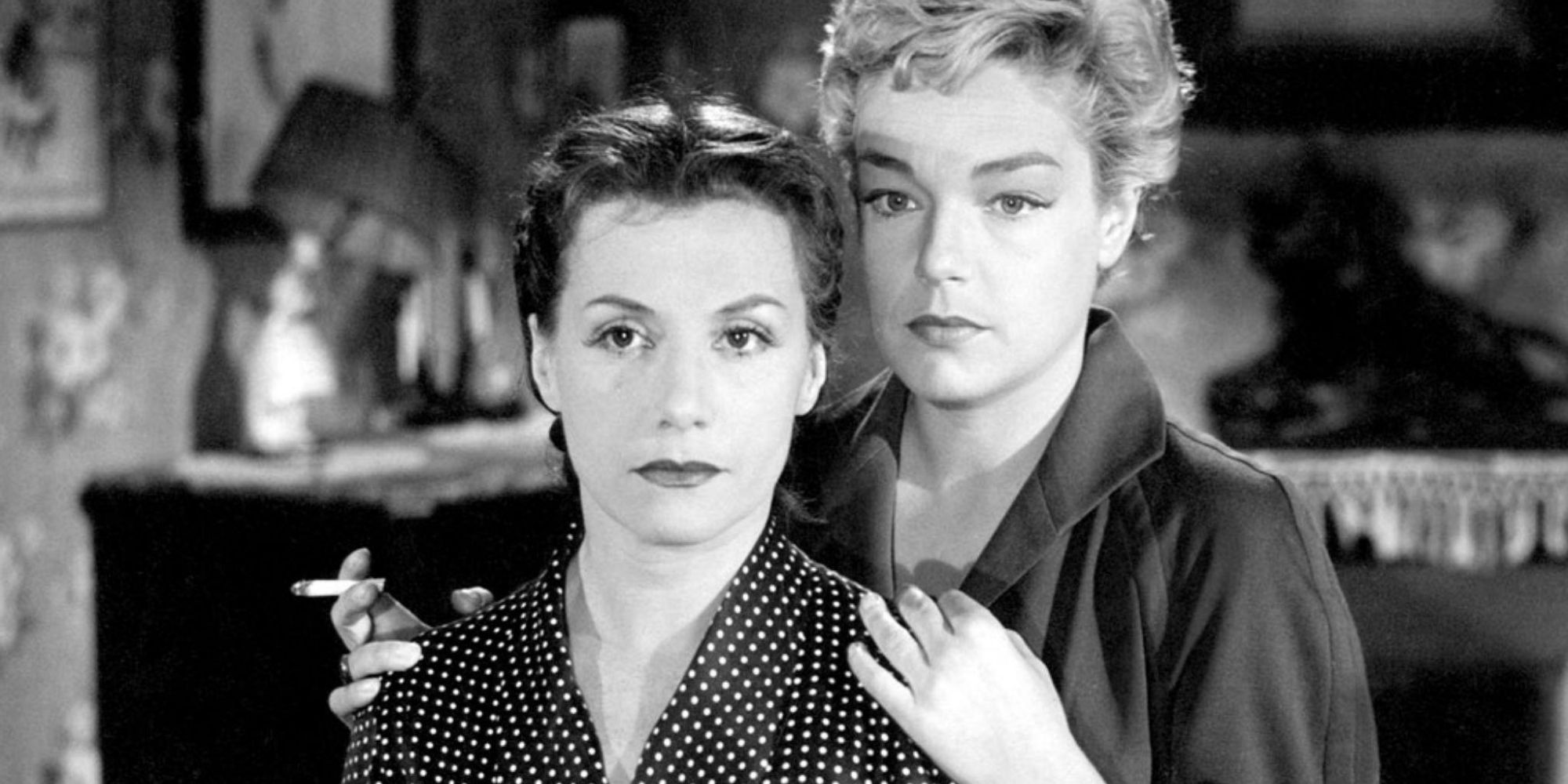Many defining elements make the elegant, realistic French cinema incredibly engaging. A highly dramatic and somewhat philosophical narrative (though often not short on humorous moments), well-written characters that showcase some kind of development, and a visually striking, sophisticated setting and locations all play poignant roles in what makes these European features so beloved. There is no doubt that France has been providing the film industry with countless high-quality features throughout the years and fascinating viewers with their intriguing stories.
However, while there are plenty of incredible picks to choose from when getting into French movies, some have managed to stand out more than others and helped shape cinema globally. To make it a bit easier for those who aren't familiar with France's national treasures to dip their toes into the country's extensive catalog, Collider has picked the best French movies of all time, from Blue is the Warmest Color to Jeanne Dielman, 23, quai du commerce, 1080 Bruxelles, ranking them by entertainment value, influence, and overall quality.
25 'Blue Is the Warmest Color' (2013)
Director: Abdellatif Kechiche
An LGBTQ+ film favorite, Blue is the Warmest Color (La vie d'Adèle) is now considered a French classic. The movie follows Adèle, played by Adèle Exarchopoulos, as she navigates a seemingly monotonous life. However, when she meets Léa Seydoux's Emma, a free-spirited girl with blue hair with whom she bonds tightly, Adèle embarks on a self-discovery journey, embracing her sexuality along the way.
Abdellatif Kechiche's film is often thrown into every conversation about contemporary French cinema, as it has quickly become one of the most discussed movies from the European country. Although Blue is the Warmest Color's controversial sex scenes are still a topic of conversation these days, the heartbreaking coming-of-age tale is much more than the adult content it features. At its core, Kechiche's movie is tender, humorous, and extreme, with two remarkably realistic central performances.
Blue is the Warmest Color
- Release Date
- October 9, 2013
- Director
- Abdellatif Kechiche
- Cast
- Lea Seydoux , Adèle Exarchopoulos , Salim Kechiouche , Aurélien Recoing , Catherine Salée , Benjamin Siksou
- Runtime
- 180 minutes
24 'A Prophet' (2009)
Director: Jacques Audiard
Following nineteen-year-old Franco-Algerian Malik El Djebena (Tahar Rahim) who has just been sent to prison with a six-year sentence in Brécourt for assaulting police officers, this top-notch Jacques Audiard 2009 crime film centers around the young man's wild journey as he navigates through life in prison and ascends the inmate hierarchy.
One of the most praised French movies, A Prophet (Un prophète), deserves all the hype it gets. Although a slightly underrated French gem (and possibly not one that is fit to everyone's taste), the gritty and riveting A Prophet is outstanding on all levels, delivering a truly engaging narrative throughout that will appeal to those who enjoy prison dramas, as it compellingly showcases the transformation of a small-time criminal into a proper crime boss.
23 'Beau Travail' (1999)
Director: Claire Denis
Like Blue is the Warmest Color, Claire Denis' moving and undeniably well-crafted Beau Travail (which translates to "Good Work") was a landmark in LGBTQ+ cinema. The openly queer adaptation of Billy Budd by Patrick Grandperrent, starring Denis Lavant, follows a Foreign Legion officer who recalls his glorious life leading troops in the Gulf of Djibouti. The film highlights his rigid and strict days and the chaotic arrival of a young recruit.
Perhaps the most valuable aspect of Claire Denis' incredible movie is the very compelling way it explores manliness, with Legion being an intriguing archetype system to reflect the stoicism of masculinity that embodies a sense of isolation and detachment. Furthermore, Beau Travail features one of the most unforgettable film endings and certainly earns a spot among the best French films of all time.
22 'The Intouchables' (2011)
Directors: Olivier Nakache, Éric Toledano
One of the most well-known French flicks, particularly among younger audiences, is The Intouchables. Oliver Nakache and Éric Toledano's movie tells the extraordinary and deeply moving story of Philippe (François Cluzet), a wealthy man who becomes quadriplegic from a paragliding accident. It explores his strong, unlikely bond with caretaker Driss (Omar Sy), who helps him to see the world differently and make positive changes in his life.
Aside from being really moving and sending out a wonderful message about the power and value of friendships, the 2011 film is equal parts funny. Despite its clichés, Nakache and Toledano's film — based on the true story of Philippe Pozzo di Borgo — is worth checking out, especially for viewers who are into emotional stories that tackle human connection and the importance of breaking down social barriers (including not making assumptions based on looks).
The Intouchables
- Release Date
- November 2, 2011
- Director
- Olivier Nakache , Eric Toledano
- Cast
- François Cluzet , Omar Sy , Anne Le Ny , Audrey Fleurot , Clotilde Mollet , Alba Gaïa Kraghede Bellugi
- Runtime
- 112
21 'The Piano Teacher' (2001)
Director: Michael Haneke
While Amour or Cache are equally great features that could potentially earn a spot on this list, The Piano Teacher, based on the 1983 novel of the same name by Elfriede Jelinek, is possibly Michael Haneke's most memorable. The 2001 erotic psychological drama follows the story of a sexually repressed, unmarried piano teacher, played by Isabelle Huppert in one of her most iconic roles, who begins a sadomasochistic relationship with her student (Benoît Magimel).
Set in 1980s Vienna, Austria, Haneke's critically acclaimed movie — it won the Grand Prix at the Cannes Film Festival — is worth checking out, if only for Huppert's tour de force performance. Nonetheless, The Piano Teacher provides audiences with an intriguing battle over sexual control, especially as a woman, and ultimately does an incredible job at depicting alienation and isolation. As such, Haneke's movie deserves a spot among the most memorable French-spoken features.
20 'Persepolis' (2007)
Director: Marjane Satrapi, Vincent Paronnaud
It's not for no reason that Persepolis is widely regarded as one of the best animation films ever made; with stunning animation and an engaging narrative, Marjane Satrapi and Vincent Paronnaud's Oscar-nominated feature, based on Satrapi's graphic novel of the same name, depicts the story of a young girl as she comes of age against the backdrop of the Iranian Revolution.
Growing up during the Islamic Revolution is certainly not the ideal scenario. However, Satrapi beautifully chronicles her real-life story in a way that keeps audiences invested, even featuring some humorous bits in it to contrast with the tragic events that take place. The emotionally powerful Persepolis is a poignant and must-see French film, essentially in the animation genre.
Persepolis (2007)
- Release Date
- June 27, 2007
- Director
- Vincent Paronnaud , Marjane Satrapi
- Cast
- Chiara Mastroianni , Catherine Deneuve , Danielle Darrieux , Simon Abkarian , Gabrielle Lopes Benites , François Jerosme
- Runtime
- 95
19 'Mommy' (2014)
Director: Xavier Dolan
When the topic is heart-wrenching coming-of-age tales, Xavier Dolan's Mommy is a title that is often brought up in conversation. Starring Antoine Olivier Pilon as the rebellious Steve, Mommy chronicles the life of a widowed single mother, played by Anne Dorval, who struggles to raise her violent son alone. However, when a nice neighbor (Suzanne Clément) inserts herself into their lives, Diane finds her life taking a positive turn.
Despite not being recommendable to everyone due to the explicit themes it tackles, Mommy provides an intriguing outlook into the lives of a struggling, grieving mother and her outspoken son, whom she very much grapples with to educate. Dolan's French essential benefits greatly from its two central performances and the beautiful cinematography it features, as well as its fantastic ending scene (spoiler alert) with Lana del Rey's song playing in the background.
18 'Playtime' (1967)
Director: Jacques Tati
According to director Greta Gerwig, Jacques Tati's French 1967 feature was one of the major inspirations behind last year's summer hit Barbie. In the movie, Tati himself plays a man who navigates through a highly advanced and modern Paris, alongside a group of American tourists. Meanwhile, a restaurant and nightclub is preparing for its opening night, but is still under construction.
Considering that it is arguably Tati's masterpiece and regarded as one of the greatest films of all time by the British Film Institute (ranking at the impressive 23rd place), the remarkably executed Playtime is a fun and engaging love letter to an ever-changing Paris, with a refreshing though simplistic premise at its center. Tati's comedy film is, no doubt, an essential in French cinema that film buffs should see at least once (and then twice after that).
17 'Eyes Without a Face' (1960)
Director: Georges Franju
Also titled Les yeux sans visage, Georges Franju's iconic horror drama centers around a plastic surgeon riddled with guilt, played by Pierre Brasseur, who is determined to perform a face transplant on his once-beautiful daughter Christiane (Édith Scob), who was disfigured in a car accident. To do so, though, he must kidnap young women and bring them to his mansion to remove their faces and attempt to graft them onto his daughter's.
Not only does Eyes Without a Face excel in the horror department with its terrifying premise, it is also an incredible technical achievement, with many considering it to be one of the best arthouse horror films. This essential French horror movie is a groundbreaking, landmarking feature in the genre, inspiring many filmmakers and enduring a really influential body horror picture to this day.
Eyes Without a Face
- Release Date
- March 2, 1960
- Director
- Georges Franju
- Cast
- Pierre Brasseur , Alida Valli , Juliette Mayniel , Alexandre Rignault , Edith Scob
- Runtime
- 90
- Main Genre
- Horror
16 'Army of Shadows' (1969)
Director: Jean-Pierre Melville
Originally titled L'Armée des ombres, the slow war drama Army of Shadows is set in the year 1942 and chronicles France's subversive resistance during the Nazi occupation, following a French Resistance commandant, Philippe Gerbier (Lino Ventura). When it was released in the wake of the events of May 1968, Army of Shadows was not well-received and was actually really controversial politically-wise, as French critics denounced it for its perceived glorification of Charles de Gaulle. It was not released in the United States until 2006.
Still, it is safe to say that Jean-Piette Melville's fantastic spy movie is technically impressive with an intriguing storyline based on a novel by Joseph Kessel, and overall an essential among French films. Army of Shadows highlights resistance to oppression. Generally speaking, the entire filmography of Jean-Pierre Melville seems to be a fan-favorite when it comes to French cinema.
Army of Shadows
- Release Date
- September 12, 1969
- Director
- Jean-Pierre Melville
- Runtime
- 145
15 'Le Samouraï' (1967)
Director: Jean-Pierre Melville
In the treasured, undeniably remarkable Jean-Pierre Melville crime drama Le Samouraï, contracted killer Jef Costello (Alain Delon) is further backed into a position when he tries to provide himself with an alibi after being seen by witnesses in the aftermath of carrying out a flawlessly planned hit.
The Franco-Italian production Le Samouraï is undoubtedly a great pick for anyone who enjoys an entertaining neo-noir; it is a highly prestigious movie that beams style through its impeccable directing on top of its fantastic central performance. Although Melville's atmosphere and hypnotizing visuals are arguably the film's strongest aspects, its intelligently written script certainly keeps boredom at bay. Le Samouraï had a major impact on Hollywood — much like in The Killer by David Fincher — and this fact can be easily spotted throughout.
Le Samourai
- Release Date
- October 25, 1967
- Director
- Jean-Pierre Melville
- Runtime
- 1h 35m
14 'Three Colors: Red' (1994)
Director: Krzysztof Kieślowski
The third and final installment of the Three Colors franchise also happens to be its best. The trilogy's anti-romance, Red, sees a young woman (Irène Jacob) who works as a part-time model forming an unlikely bond with her neighbor, a retired judge (Jean-Louis Trintignant), after she accidentally runs over his dog. She then discovers that the judge listens to other people's phone conversations. While she is naturally outraged at first, the two end up forging a meaningful connection.
In addition to how beautifully shot and atmospheric it is, Krzysztof Kieślowski's movie sends out poignant messages about human connection through its unconventional narrative. It is essentially a film about communication and fraternity, with two amazing lead performances that elevate it to higher levels. Fortunately and understandably, the French Red is a relatively popular feature in American cinema.
13 'Amélie' (2001)
Director: Jean-Pierre Jeunet
There's no doubt that the iconic Jean-Pierre Jeunet movie still has a huge impact on pop culture 22 years after its release. Centering around Audrey Tautou's kind-hearted Amélie, who sees the world through a bright and joyful lens and looks into ways to make everyone's life better. By meditating on the magic of everyday life, the enchanting Amélie (Le fabuleux destin d'Amélie Poulain) is guaranteed to make viewers more appreciative of the smallest things.
Taking a spot in almost every French film-related post on the website, this magical realism movie by Jeunet ranks high among the very best French films of all time. Amélie is tender and endearing, showcasing the importance of compassion and the strength of being soft while also highlighting loneliness.
12 'Hiroshima Mon Amour' (1959)
Director: Alain Resnais
Alain Resnais' iconic Hiroshima mon amour (Hiroshima, My Love) is a beautifully told drama that revolves around a passionate affair between a Japanese architect, Lui (Eiji Okada), who lost his family in the bombing, and Elle (Emmanuelle Riva in a truly arresting performance), a young girl who's in Japan with the intent of making a feature about the impact of Hiroshima's atomic bomb.
It is not for no reason that the classic romance movie takes place on a good number of "French essentials" film lists — it is a truly influential movie that helped shape film history, as it is one of the first few films to introduce non-linear construction. Featuring dramatic, enthralling cinematography that plays like an irresistible poem, the equal parts sad and sensual Hiroshima mon amour is an unforgettable watch that meditates on memories, international trauma, and growth.
11 'La Haine' (1995)
Director: Mathieu Kassovitz
Another essential pick is Mathieu Kassovitz's crime drama, which offers a twenty-four-hour insight into the lives of three young men spent in the French suburbs. In La Haine Abdel (Abdel Ahmed Ghili) goes straight to the hospital after a beating at the police station during the riots that took place the night before. In the meantime, arab Saïd (Saïd Taghmaoui), his Jewish friend Vinz (Vincent Cassel), and a Black boxer named Hubert (Hubert Koundé) join forces and promise to avenge their friend if he doesn't make it out alive.
Although its title is translated to "Hate," this Kassovitz film is nearly impossible not to love (or at least enjoy). Like many French films on this list, La Haine is utterly realistic, whether that is in its portrayal of violence and the gritty world of its characters or the dialogues and camerawork it features. Tackling themes of poverty, racism, crime, and police brutality, Kassovitz made the film in homage to all those who perished in the riots in Paris that took place between 1986 and 1996.
La Haine
- Release Date
- May 27, 1995
- Director
- Mathieu Kassovitz
- Cast
- Vincent Cassel , Hubert Koundé , Saïd Taghmaoui
- Runtime
- 98 minutes
- Main Genre
- Thriller
10 'Portrait of a Lady on Fire' (2019)
Director: Céline Sciamma
Celine Sciamma's Portrait of a Lady on Fire is undoubtedly one of the most unforgettable period pieces of recent times, providing audiences with a refreshing narrative surrounding a love affair between two women in the late 18th century. It stars Adèle Haenel and Noémi Merlant as the two captivating leads, whose chemistry as lovers is off the charts, and centers on an aristocrat and a painter commissioned to paint her wedding portrait.
The strikingly gorgeous, deeply touching Portrait de la jeune fille en feu is undoubtedly one of Sciamma's most memorable pieces (it is critically acclaimed for a reason). On top of that and on a bigger scale, Portrait of a Lady on Fire is nothing less than one of France's finest productions. Realistic, humane, heartfelt, and painfully passionate, Sciamma's movie is a heart-wrenching tale of love and repression elevated by picture-perfect cinematography. Some other great films by the director worth checking are Tomboy and Petit Maman.
Portrait of a Lady on Fire
- Release Date
- May 29, 2019
- Director
- Céline Sciamma
- Cast
- Noemie Merlant
- Runtime
- 120
9 'Breathless' (1960)
Director: Jean-Luc Godard
Jean-Luc Godard's Breathless follows a small-time thief named Michel Poiccard (played by Jean-Paul Belmondo), who steals a car and impulsively murders a motorcycle policeman who pursues him. After renewing his bond with an American girl studying journalism at the Sorbonne, Patricia Franchini (brought to life by Jean Seberg), Michel attempts to persuade her to run away with him to Italy.
When it comes to French must-sees, every Godard film — whether that is Breathless, Pierrot le fou, or Band à part — should be at the top of the list, as the French New Wave filmmaker was one of the most influential French directors of all time. While pretty much any Godard film deserves viewers' attention, Breathless is surely a great starting point. With stunning cinematography and an engaging plot throughout, the Jean-Luc Godard feature makes for an entertaining romance crime film.
8 'The Umbrellas of Cherbourg' (1964)
Director: Jacques Demy
Jacques Demy's French New Wave film The Umbrellas of Cherbourg — just like Playtime, it was one of the major inspirations behind Greta Gerwig's Barbie — is undoubtedly worth mentioning when the subject is top French movies. Set in 1957, this pastel-colored movie depicts a woman's (played by the iconic French actress Catherine Deneuve) self-growth journey after being separated from her lover by the war.
While reflecting on success, youth, and heartbreak, Demy's dreamy film is technically perfect, like many other astounding pieces of cinema by the filmmaker, such as The Young Girls of Rochefort. Its strongest aspects? Possibly the fantastic acting, incredible songs, and impeccable set and costume design make The Umbrellas of Cherbourg exceptionally appealing to the eye. In 1966, it was understandably Oscar-nominated for Best Foreign Language Film, Best Original Song, and Best Writing, among other nods.
The Umbrellas of Cherbourg
- Release Date
- December 16, 1964
- Director
- Jacques Demy
- Cast
- Catherine Deneuve , Nino Castelnuovo , Anne Vernon , Marc Michel
- Runtime
- 91 minutes
7 'Cléo From 5 to 7' (1962)
Director: Agnès Varda
Whereas Godard is widely regarded as the "father of the French New Wave," the visionary Agnès Varda — who was merely two years his senior — is, for some reason, known as the "grandmother" of the French cinematic movement (she was in her thirties when she earned this title). Varda paved the way for many female filmmakers around the globe, and her most celebrated work is perhaps Cléo From 5 to 7, a black-and-white drama that spans a day in the life of a young female singer (Corinne Marchand) who changes her self-perception in the course of an afternoon while awaiting medical exams.
Agnès Varda's iconic movie is worth checking out for plenty of reasons, including how it gives voice to feminism, highlighting the way women must find their own agencies in a patriarchal society, and depicting how the genre is often perceived. Cléo From 5 to 7 is nothing short of an incredible achievement for both female cinema and cinema as a whole, making Varda's feature an essential among other French films.
Cléo from 5 to 7
- Release Date
- April 11, 1962
- Director
- Agnès Varda
- Cast
- Antoine Bourseiller , Corinne Marchand , Dominique Davray , Dorothée Blanck
- Runtime
- 90 minutes
6 'Diabolique' (1955)
Director: Henri-Georges Clouzot
Among the best French horror films is Diabolique, a suspenseful Henri-Georges Clouzot feature that stands the test of time as one of the country's most poignant and groundbreaking films. Diabolique centers around the abusive headmaster of a boarding school, Michel Delassalle (Paul Meurisse), who becomes the target of a murder plot put together by an unlikely duo: his wife (Vera Clouzot) and mistress (Simone Signoret).
Given the seamless way it builds tension and suspense, Clouzot's black-and-white psychological horror thriller is a noticeable influence on other popular cinematic works in the genre, including Alfred Hitchcock's iconic film Psycho. With an intelligently written script and remarkable execution, Diabolique is a must-see for anyone who wants to dip their toes in French cinema, but also essential to every horror movie enthusiast.

